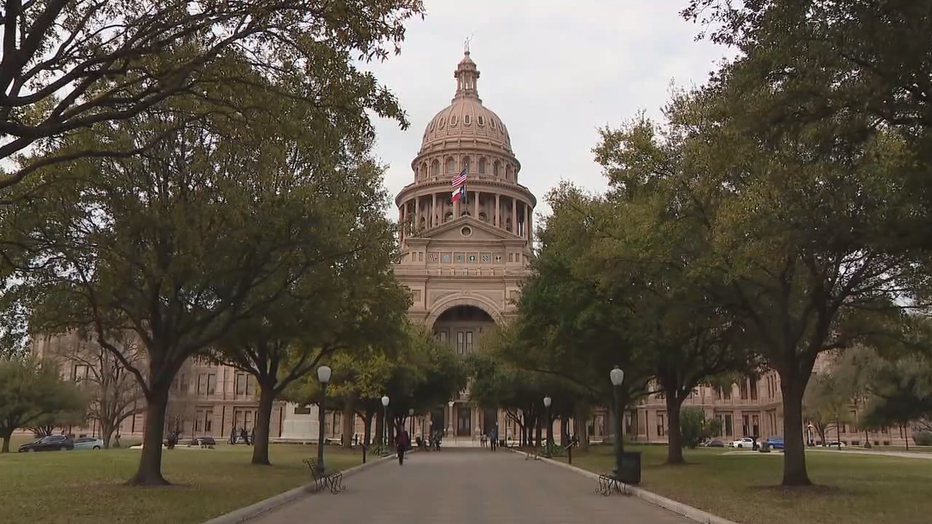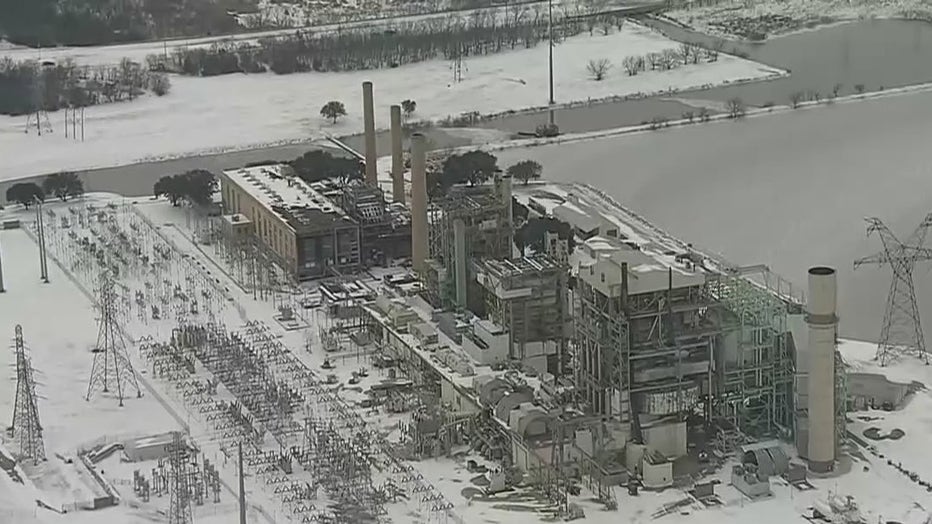Texas Railroad Commission chair answers questions in hearing over power outages from winter storm
AUSTIN, Texas - There was a different tone to the first round of questions Friday in the second day of hearings by Texas lawmakers into last week’s power grid meltdown.
Friday’s focus was more on what did work when the lights went out, which was gas, and the agency that oversees oil and gas in Texas.
Texas Railroad Commission Chair Christi Craddick, who is a Republican, is the first elected official to sit in the witness chair at these hearings.
Republicans who lit a fire under witnesses Thursday complimented Craddick and the Railroad Commission.
But Democrats leaned in and were critical of her position on not making energy producers better prepare their equipment for winter weather.
"My agency took proactive steps to prevent disruption to the natural gas supply and availability," Craddick said.
Craddick said her agency, which regulates oil and gas production and pipelines, kept the gas going, prioritizing homes, hospitals, churches, and schools. She said they worked with the state to get frozen roads cleared so operators could get to the oil fields, she added that power was the problem.
"As outages spread across the state, the oil field was not immune, and unfortunately, operators were unable to keep their systems functioning as power was cut," Craddick explained.

On Thursday, it was the power plant operators who said they could not keep generators running because they could not get natural gas.
Friday, Republicans praised Craddick and the Railroad Commission's response.
"I think y'all were ahead of the PUC and ERCOT in realizing something bad was going to happen last week, and I appreciate y'all got started before they did," said State Rep. Charlie Geren (R- Grand Prairie).
"We put more gas into this system and used more gas in two weeks than I think we ever have historically, so we moved gas in this state and we were - we got us out of the problem, to be honest," Craddick said.
But Democrats pressed Craddick on her position that companies should not be required to weatherize equipment so Texans aren't stuck in the cold again.
"Mandating anything, ‘cause one size doesn’t fit all is always a challenge for us," Craddick said.
Texas Railroad Commission chair answers questions in hearing over power outages from winter storm
Lawmakers also identified more weak links Friday in the state’s energy infrastructure. A day after power generators testified some plants went down during the storm due to a lack of natural gas, it was the natural gas industry’s turn.
"I think that’s a tough thing to sell to Texans right now, especially those who lost loved ones or who have property damage that they may never recover from," said State Rep. Eddie Lucio III (D – Brownsville).
Democrats also charged the Railroad Commission chair for not notifying the public about what was happening.
That brought Republican representatives to her defense, saying because she is elected, it’s not her job to tell the public we are about to have a dangerous weather event.
Public Utility Commission Chair Deann Walker tried to minimize her agency’s role as the watchdog over ERCOT. Lawmakers weren’t buying it and are pointing to moments like when State Rep. Rafael Anchia (D-Dallas) was questioning Walker.
"Do you think Texans deserve a public apology from the Public Utilities Commission?" Anchia asked. "The fact that you’re hesitating… is astonishing. It’s astonishing. No further questions.
In the wake of Walker’s performance, some lawmakers from both parties are calling on Walker, an appointee of the governor, to resign.
Republican Rep. Jared Patterson from Frisco tweeted: "PUC Chair (at least) must resign. I have zero confidence after today’s hearings; and by the line of questioning of my colleagues, I believe most if not all agree with me."
Oncor CEO Alan Nye described challenges getting electricity back to homes and businesses.
Transformers that were off in sub-freezing temperatures suffered damage.
"Of all the transformers we replaced on our system last year, we replaced 20% of those last week," Nye said.
Some wondered why Dallas County outages were restored more quickly than smaller Tarrant County.
"Was there a good reason for that, or do you just like Dallas better?" said State Sen. Nathan Johnson (D – Dallas).
"We do not like anyone better. Things come up at different times," Nye replied.
Nye explained that the goal was to get as many people back online as quickly as possible.
But Oncor had to slow the process down to keep from tripping more transformers.
"Bring one house up, let it warm up, bring another house up so that the system could handle it coming back online," he said.
Lawmakers also identified more weak links Friday in the state’s energy infrastructure. A day after power generators testified some plants went down during the storm due to a lack of natural gas, it was the natural gas industry’s turn.
"I’ve seen like self-promotions on Twitter by the natural gas industry trumpeting their horn about how much they supplied during this crisis," said State Senator Charles Schwertner (R-Georgetown). "I’d get that down because I still believe everyone has egg on their face in this situation."
Natural gas industry officials said pipelines buried underground did not freeze but some equipment failed, in part, because power was turned off.
Some in the natural gas industry say it’s because ERCOT or transmission companies didn't know they were there and cut the power off.
"I think one of the biggest issues identified has been not identifying ourselves as critical load to the local utility companies," said Texas Oil & Gas Association President Todd Staples.

Despite natural gas’ critical role in the power grid, Staples revealed that in the last five years he’d only heard from ERCOT once.
Lawmakers seemed stunned ERCOT didn’t communicate more about getting industry players on a "no cutoff" list.
"I’m not sure about y’all, but I’m like really?" said State Senator Kelly Hancock (R-North Richland Hills. It’s not like y’all just came into existence. I mean business has been around a while."
"Yes sir. The legacy of our assets goes back decades," said Grant Ruckel with Energy Transfer.
"And yet you just learned about a form from ERCOT that you needed to identify those locations? Key locations." Hancock said.
Gas prices spiked during the crisis.
Top officials for Atmos energy testified that those high prices would get passed onto the customers who were using gas to heat their homes or cook meals.
Atmos says it’s working with its regulator, the railroad commission, to figure out what to do to avoid slapping customers with exorbitant bills. That could mean spreading out the extra cost over many bills.

